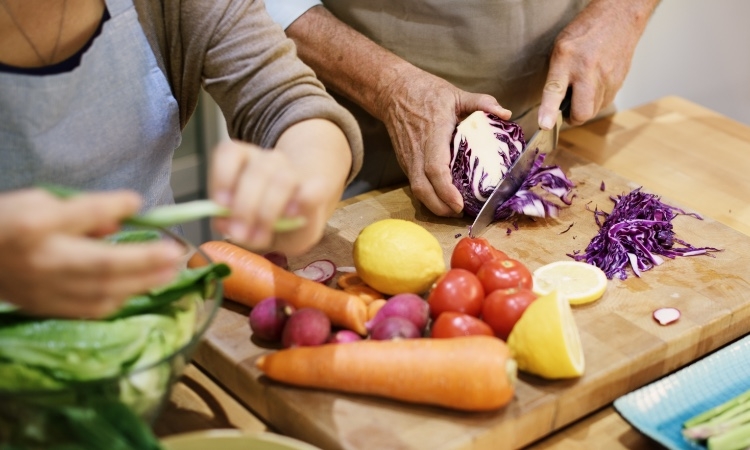
Healthy Eating for Seniors
By CarePatrol of Baltimore
Finding it difficult to muster up the energy to cook a healthy, balanced meal? You’re not alone. Many older adults find that cooking presents a unique challenge later in life. Grocery shopping, recipe planning and the act of cooking itself can be often be overwhelming. It can also be confusing finding foods that qualify as “healthy,” with diet trends constantly changing. Some Seniors also find that certain foods do not agree with their medications or medical conditions.
The first step to attaining healthy culinary nutrition is consulting with your physician. Consulting with your or your loved one’s doctor will reveal if there are preexisting medical conditions that will dictate what kind of diet is best. A strict Mediterranean diet, for example, is often recommended for patients with or at risk of dementia or Alzheimer’s.
The diet’s emphasis on fruits, vegetables, legumes and recommended moderate consumption of oily fish and daily have been shown to reduce the risk of memory loss. It is also a good plan of action for those who have suffered from or at risk of a stroke, type 2 diabetes and cardiovascular disease. Even a loose adherence to the diet can be beneficial for those with common health problems.
A patient with osteoporosis or bone loss may need a higher intake of foods containing calcium, which include less-obvious sources such as leafy greens, seafood, legumes and fruits. It’s best to also consult with a dietician or nutritionist after speaking to a doctor, as they may have more specific or targeted instructions.
Once a dietary plan is in place, there are several options on getting them implemented. If cooking for yourself, plan on working with your child, relative or nutritionist to create a plan of action. If cooking for a loved one, consider preparing nutritious meals that will heat up easily. If that isn’t possible, hiring a caregiver or part-time employee is an option.
Grocery shopping is a unique problem for many Seniors, as it often involves both physical mobility and driving a car. Some volunteer services offer rides and assistance to and from the grocery store, and others, like Meals on Wheels, offer whole meals for homebound residents. If shopping is the only issue, there is also grocery delivery, such as Giant’s Peapod service. Consider reaching out to your local department on aging for more information about volunteers who can help.
Welcome Home Meals is a good example of a meal delivery service that offers healthy heat-and-serve dishes. Clients can choose from a variety of targeted menus, including general wellness, cancer-support, heart-friendly (low sodium), gluten-free, vegetarian and more. Meals stay fresh in packaging for up to 14 days in the fridge.